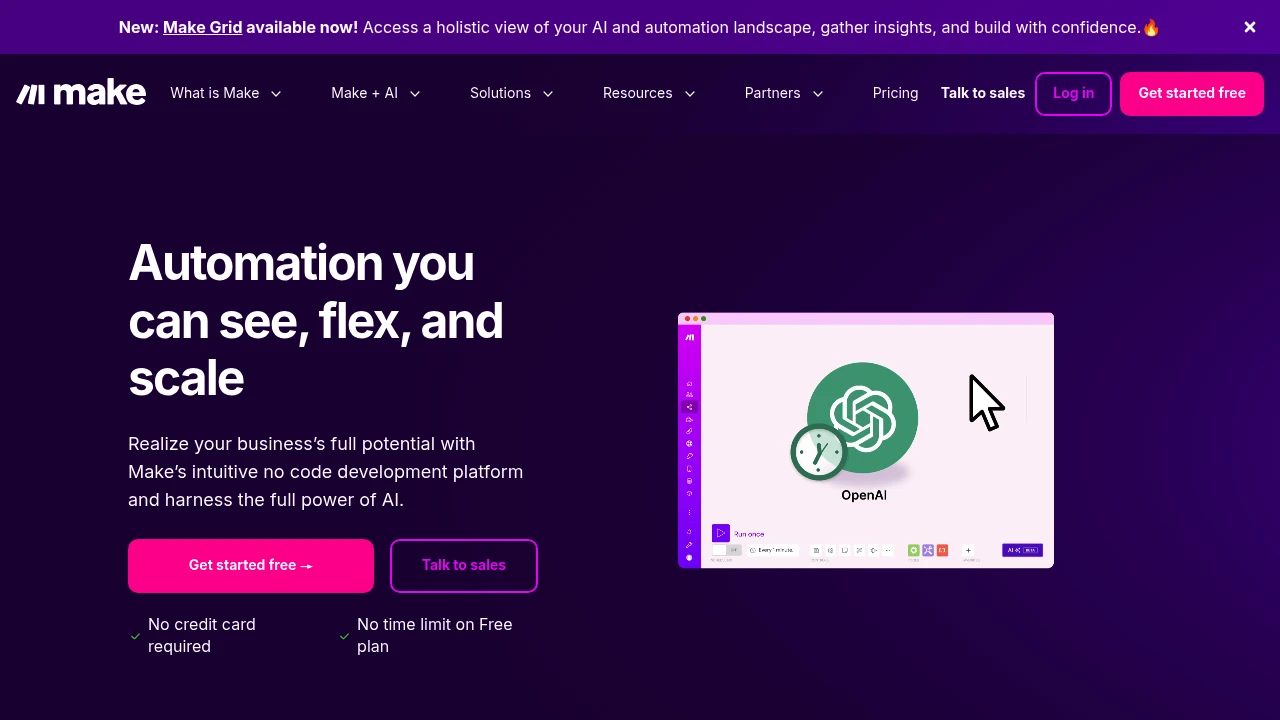Make
Realize your business’s full potential with Make’s intuitive no code development platform and harness the full power of AI.

Make is a strong no-code platform. It helps you link various apps and services to automate tasks you do often. It is made for businesses and individuals who want to simplify their processes and boost efficiency.
Key Highlights
- Visual Workflow Builder: Create complex automations using a drag-and-drop interface.
- Extensive App Library: Connect to thousands of popular apps and services.
- Advanced Logic: Use routers, iterators, and error handlers to build sophisticated workflows.
- Real-time Execution Logs: Monitor and troubleshoot your automations with detailed logs.
What Makes It Different
Make's visual approach to automation sets it apart from other platforms. Viewing your entire workflow as a diagram makes it simpler to understand, create, and fix complex automations. Make provides more advanced features and flexibility than many competitors. This makes it a top choice for users with complex automation needs.
Features & Capabilities
Make helps you automate many tasks. You can sync data between apps, send automated emails, and create custom reports. The platform supports a vast number of integrations, and you can also connect to any API or webhook. Make offers features for team collaboration. You can share and manage automations across your organization.
User Ratings and Testimonials
Make has an average rating of 4.7 out of 5 stars from over 240 reviews on G2.
Users praise its powerful features, flexibility, and ease of use. Some users have reported problems with the pricing model. It counts operations, not tasks, so costs can be higher than expected. Some have also mentioned a steeper learning curve compared to other automation platforms.
Pricing & Value
Make offers a free plan with a limited number of operations. Paid plans start at $11 per month for 10,000 operations. The pricing is based on the number of operations you need and the features you require.
Make offers great value by helping businesses automate processes. This saves time and resources.
Analytics
Deep dive into AI Tool performance and audience insights.
Growth Trend
DecliningTraffic growth over last 30 days
Traffic & Engagement
Traffic Sources
Top Countries
FAQs
Make.com was formerly known as Integromat. The company rebranded to Make in February 2022.
Make.com features a visual drag-and-drop builder, making it easy to get started. While simple automations are intuitive, complex workflows can have a learning curve.
Zapier is often best for beginners due to its simplicity and huge number of app connections. Make offers more powerful, visual workflows for complex tasks.
Make, formerly known as Integromat, is owned by Celonis. The German software company acquired the platform in 2020.
Ask specific questions about this tool.